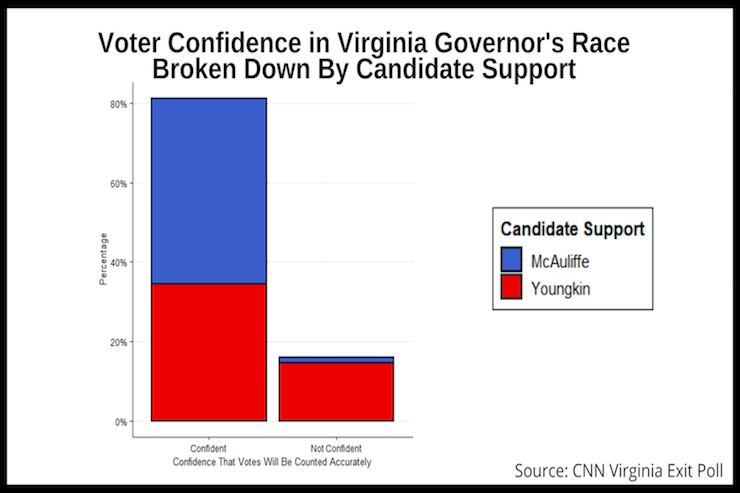The recent gubernatorial race in Virginia gave us our first large-scale look at voter confidence in an actual election since 2020. Examining CNN’s exit polls from Virginia, we can see that a partisan divide in election confidence persists. As the graph shows, the vast majority of Virginia voters were confident that their votes would be counted accurately. Yet of the 16 percent of Virginia voters who were not confident, the overwhelming majority backed Republican candidate Glenn Youngkin, who ultimately won. Although Youngkin sought to distance himself from Donald Trump’s election lies, 70 percent of Republican voters nationwide believe that the 2020 presidential election was stolen. Apparently a small but significant portion of the Virginia electorate, primarily Republicans, continues to distrust elections, potentially signaling that claims of fraud will remain salient going into the 2022 midterms and beyond.
Become a Votebeat sponsor
Graphic of the Week: High Confidence in Virginia Election

The Latest
The appeal challenges whether voters can sue municipalities for negligent election errors.
Election officials had feared that federal agents would interfere with the 2026 midterms, even though federal law prohibits armed troops at polling places.
County leaders will appoint a new recorder, who must be a Republican.
The decision could make it harder for some to vote, and has left county officials scrambling.
Pennsylvania holds more special elections than any other state — and it’s costing taxpayers millions.
Wisconsin’s decentralized election system depends on aging local officials with no clear successors.




